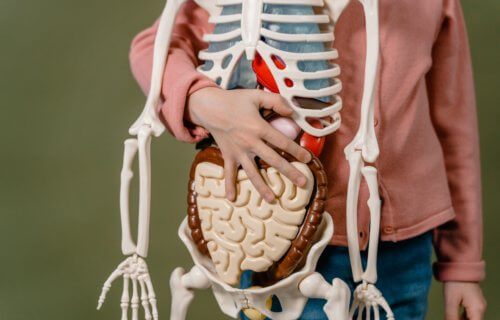LONDON — It’s back to school season all around the world, and a new study finds many adults need a refresher course on human anatomy as well! A new poll reveals that the public is lacking a worrying amount of information about their own personal health.
The survey of 2,000 adults finds many are unable to identify key metrics for monitoring their overall health. In fact, just 37 percent are very confident they can name their own blood type. Only 24 percent know what their BMI (body mass index) is. Less than one in four (23%) know what their resting heart rate should be.
Oblivious on organs
When it comes to identifying organs in the body, just two in three (63%) believe they can accurately point out where the heart and brain is located. Only 22 percent could pinpoint the gall bladder and just one in five know where the spleen is.
To put the findings to the test, researchers quizzed residents in the United Kingdom on whether they could spot the correct organ, while others had to pick out which blood types were real or fake.
The results reveal many are confused about how to calculate BMI, with one respondent admitting they know “nothing about the human body.”
“It’s important we all try to have a good understanding of what it means to be healthy,” says Dr. Chun Tang, medical director from private healthcare provider Pall Mall Medical, which commissioned the research, in a statement.
“Having knowledge about health allows people to make good choices when it comes to diet, lifestyle and be aware of what to look out for when things might go wrong. Our health is one of the most important things we have to look after, and it should be a priority for all of us.”
Men are not staying on top of their health
The survey also found just 19 percent are completely confident they manage their health well. A third are now less likely to call their general practitioner regarding their health since the start of the COVID-19 pandemic.
Not wanting to overwhelm the healthcare system (37%), worrying about patient waiting lists (32%), and not thinking their issue is serious enough (31%) are the main reasons people put off calling a professional. Waiting for health test results (33%) was also one of the most stressful scenarios for adults, ahead of their wedding day (28%) and the birth of a child (23%).
Worryingly, women are far more likely than men to call their doctors if they spot a sign of a possible health risk. In fact, only 50 percent of men versus 63 percent of women would call their doctor if they see the signs of cancer, according to the OnePoll survey.
Women were also more likely to call for a doctor on virtually all health problems, including broken bones (39% to 32%), lung problems (51% to 44%), and mental health issues (34% to 24%).
“It’s worrying so many people feel they aren’t able to reach out for professional advice when they could have a serious health issue,” Dr. Tang concludes. “Everyone should have access to the best possible healthcare and not having to worry about the implications that might have on the service they are seeking out. Having confidence in your own health can set you up for life and takes a worry off your shoulders.”
WHAT ORGANS CAN PEOPLE IDENTIFY?
- Heart – 63%
- Brain – 63%
- Lungs – 60%
- Stomach – 59%
- Rectum – 55%
- Reproductive organs – 52%
- Kidneys – 50%
- Bladder – 48%
- Liver – 43%
- Appendix – 38%
72Point writer Charlie Bayliss contributed to this report.
